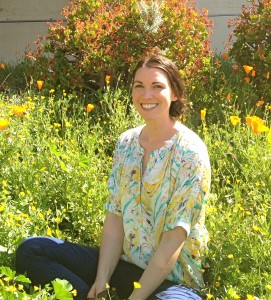
| |
| calendar |
| speakers |
| resources |
| blog |
| contact |
| Amber Sciligo, PhD |
Marin Science Seminar Presentation: "The Case of the Disappearing Pollinators: When Bees Fall Prey to Carnivorous Plants" (October 21, 2015) Download the flyer here Pollinators are vital to ensure the reproduction of many kinds of plants. Who are these pollinators and how do they get the job done? How do plants attract these creatures to make sure their pollen gets picked up and delivered? What happens when pollinators don't come? These are all questions I will cover in the context of my PhD work in New Zealand on the carnivorous "Sundew" plant. I will introduce you to the needs of these plants, particularly the need for insects as a source of both pollination and food. I will talk about how these plants "choose" insects to fulfill one role over the other. Or perhaps it's possible for them to have their [insect] cake and eat it too! Amber Sciligo is a Postdoctoral Researcher working with Professor Claire Kremen in the department of Environmental Science, Policy and Management (ESPM) at UC Berkeley. Since 2009 she has been studying the value of native bees to mitigate the risk of honeybee losses. Her work began on this topic in New Zealand, while collaborating with researchers interested in honeybee collapses and the catastrophic risks posed for NZ agriculture, where native bees that could replace the service of honeybees, are extremely limited. (This is unlike the good fortune of CA, where there are many native bees that can fill the role of the honeybee). As a result of a two year study in the Central Coast growing region on the effects of crop diversity on native bee and natural predator communities, her interests have expanded beyond ecological interactions in agriculture. She is now the coordinator of a large, USDA funded project, that is exploring the ecological, economic and sociopolitical consequences (both positive and negative) of adopting diversified farming practices. The goal is to find a level of diversification that supports the environment to the extent that it gives back to the crops, that earns a sustainable income, and that supports the livelihoods of farmers with little regulatory conflict. Within this project, she is also exploring the ecological effects of diversification on native bee communities and their resulting services to the focal study crop: strawberry. Amber received her PhD in Ecology and Evolution in Canterbury, New Zealand. Her dissertation work was on the evolution of self-fertilization in carnivorous plants as a mechanism to overcome the long term absence of pollinators. A California native from a farming community, she left agriculture to pursue a BSc in Ecology and Evolution at UC Santa Cruz, and after a long adventure in natural systems, has now returned to addressing systemic and major problems in our current global food system. |
